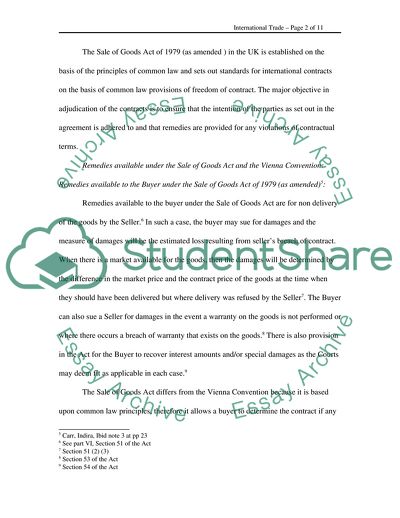Cite this document
(International Trade Law Coursework Example | Topics and Well Written Essays - 2500 words, n.d.)
International Trade Law Coursework Example | Topics and Well Written Essays - 2500 words. https://studentshare.org/law/1708613-compare-and-contrast-the-remedies-available-under-the-sale-of-goods-act-1979-amended-with-the-vienna-convention-on-the-international-sale-of-goods-1980-which
International Trade Law Coursework Example | Topics and Well Written Essays - 2500 words. https://studentshare.org/law/1708613-compare-and-contrast-the-remedies-available-under-the-sale-of-goods-act-1979-amended-with-the-vienna-convention-on-the-international-sale-of-goods-1980-which
(International Trade Law Coursework Example | Topics and Well Written Essays - 2500 Words)
International Trade Law Coursework Example | Topics and Well Written Essays - 2500 Words. https://studentshare.org/law/1708613-compare-and-contrast-the-remedies-available-under-the-sale-of-goods-act-1979-amended-with-the-vienna-convention-on-the-international-sale-of-goods-1980-which.
International Trade Law Coursework Example | Topics and Well Written Essays - 2500 Words. https://studentshare.org/law/1708613-compare-and-contrast-the-remedies-available-under-the-sale-of-goods-act-1979-amended-with-the-vienna-convention-on-the-international-sale-of-goods-1980-which.
“International Trade Law Coursework Example | Topics and Well Written Essays - 2500 Words”. https://studentshare.org/law/1708613-compare-and-contrast-the-remedies-available-under-the-sale-of-goods-act-1979-amended-with-the-vienna-convention-on-the-international-sale-of-goods-1980-which.


